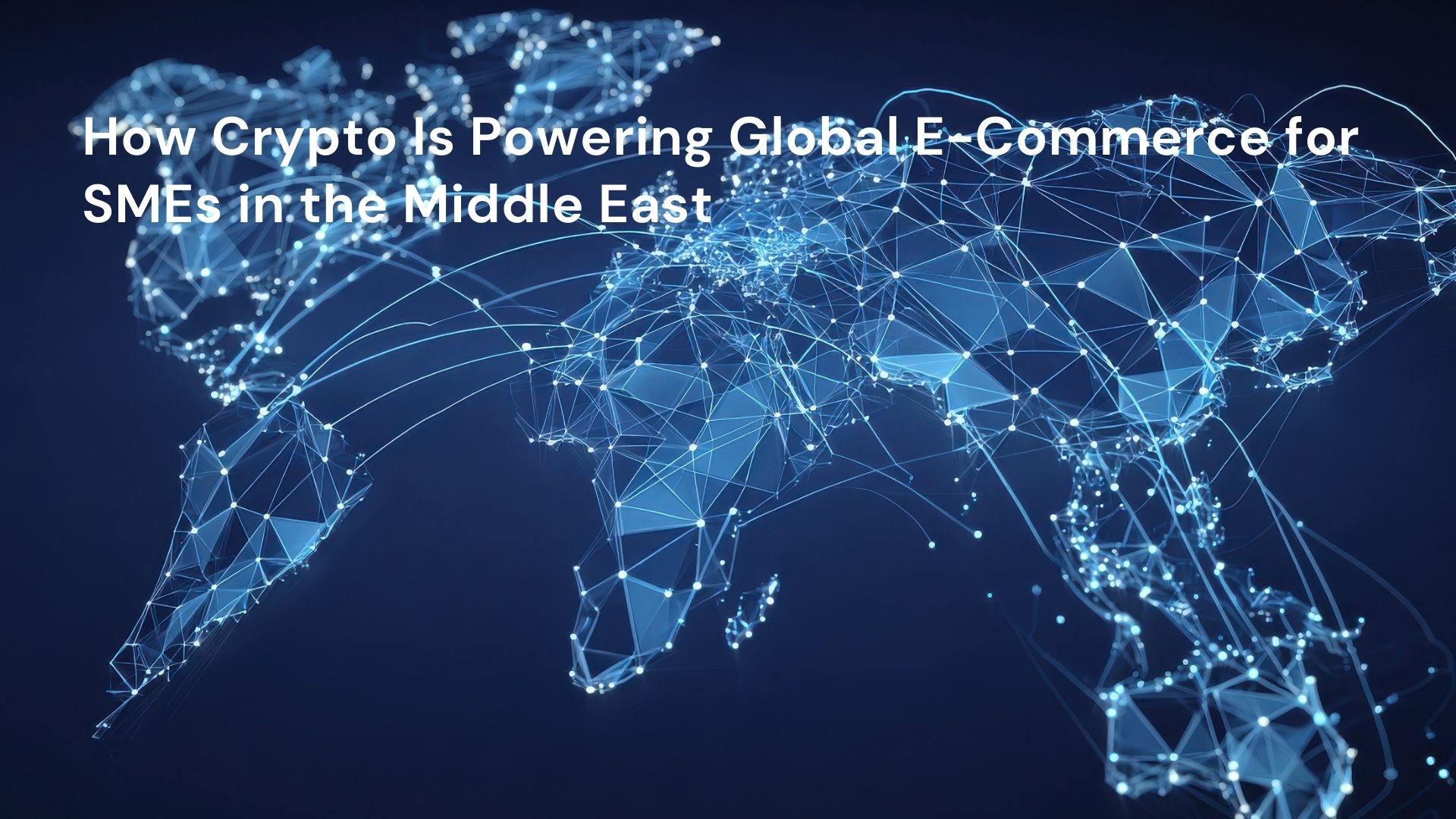The e-commerce landscape in the Middle East has undergone a significant transformation in recent years. At the heart of this digital shift are small and medium-sized enterprises (SMEs), which continue to adapt to evolving consumer demands and technological innovations.
Current world of SMEs
SMEs form a crucial pillar of the Middle East’s economic fabric, encompassing thousands of businesses across various sectors, from retail to services. A growing number of these enterprises have migrated to online platforms, expanding their market reach and sharpening their competitive edge. Cryptocurrencies are increasingly emerging as a practical solution for payments, particularly for businesses looking to streamline cross-border transactions.
Platforms like Bitpace empower these SMEs to settle payments swiftly and securely, bypassing the hefty fees and slow processing times typical of traditional banking. Moreover, integrating crypto can simplify financial operations by allowing businesses to manage customer transactions through a centralised and intuitive dashboard.
Growth trends in e-commerce
E-commerce in the Middle East is on an upward trajectory. Forecasts project that the market will surpass US$30 billion in annual revenue by 2025, fuelled by growing smartphone usage, enhanced internet accessibility, and changing shopping habits. As digital payments become more diverse, a rising number of SMEs are expected to adopt crypto as a preferred method.
This shift opens the door to a global audience of more than 400 million crypto holders, enabling businesses to broaden their reach and appeal to consumers who prefer decentralised payment options. By embracing crypto, SMEs are not only modernising their operations but also contributing to broader financial inclusion.
The impact of crypto on e-commerce
Crypto is reshaping the e-commerce space, offering unique advantages for small and medium-sized enterprises (SMEs) across the Middle East. Through digital currencies, these businesses enhance efficiency, reduce costs, and broaden their global footprint.
Benefits for SMEs
- Reduced transaction costs: Traditional payment processors typically charge between 3% and 5% per transaction, whereas crypto transactions average around 1%, significantly improving profit margins for SMEs.
- Global reach: Accepting cryptocurrencies unlocks access to a worldwide customer base. With over 400 million crypto holders globally, SMEs can tap into new markets and appeal to consumers who prefer decentralised payment options.
- Enhanced security: Blockchain technology offers strong safeguards against fraud. Transparent and immutable transaction records increase customer trust and protect businesses from common payment-related risks.
- Broader financial access: For SMEs underserved by conventional banks, crypto offers new financial opportunities. Digital currencies support alternative funding, enable faster cross-border payments, and simplify global commerce.
Challenges and risks
- Volatility in value: Price fluctuations can affect revenue stability. SMEs must account for potential swings in the value of crypto assets to avoid cash flow disruptions.
- Operational overhauls: Shifting to crypto involves adjusting internal systems and ensuring compatibility with existing business workflows and compliance obligations.
- Regulatory ambiguity: Regulations vary across the Middle East. Navigating differing legal frameworks can be complex and requires thorough due diligence.
- Logistical and trust challenges: Despite growing digital sales, expected to reach USD 50 billion by 2025, many SMEs still face challenges related to delivery networks and public trust in crypto payments.
By adopting platforms like Bitpace, SMEs can address many of these risks through features such as secure gateways, real-time settlement, and clear compliance tools. This empowers businesses to confidently navigate the digital shift.
Case studies: SME success stories in the Middle East
Across the Middle East, more SMEs are integrating crypto into their business models, resulting in tangible improvements in payment efficiency and market expansion.
Successful SME adoptions
- United Arab Emirates: The Securities and Commodities Authority (SCA) has created a crypto-friendly environment for SMEs. One local retail company implemented a crypto gateway to accept Bitcoin and Ethereum, successfully cutting fees and enabling faster customer payments.
- Bahrain: With one of the region’s first licensed crypto exchanges, Bahrain leads in building a trustworthy crypto ecosystem. Local SMEs report growing cross-border sales, citing crypto adoption as a key enabler for operational agility.
- Saudi Arabia: Government-backed programmes now reimburse SMEs up to 70% of e-commerce listing fees. Initiatives from the SME Bank support crypto integration, simplifying digital transactions for merchants and customers alike.
These examples reflect how supportive policies, combined with innovative financing models, can accelerate digital transformation.
Lessons learned from early adopters
Early adopters provide key insights:
- Digital readiness is crucial: SMEs with advanced digital infrastructure, trained staff, and strong online marketing strategies see better returns from crypto adoption.
- Regulatory clarity drives growth: Countries with transparent legislation around digital assets inspire greater business confidence and broader adoption.
- Avoiding overdependence on platforms: While tools and platforms like Bitpace are vital, SMEs should also maintain autonomy and flexibility to adapt to evolving market dynamics.
- The power of education: Programmes like Bahrain’s e-commerce Academies empower SMEs with skills in online sales, digital marketing, and crypto payments, essential for thriving in a competitive, digital-first world.
The future of crypto in e-commerce
The next phase of e-commerce will likely be defined by the wider adoption of stablecoins, which provide price stability and faster processing, essential factors for SMEs navigating global trade. Emerging technologies such as programmable payments, often integrated with AI, are also redefining how transactions occur. These systems allow automated, round-the-clock payment execution, improving convenience and reducing human error.
Emerging trends
Several major trends are set to shape the crypto landscape in e-commerce:
- Blockchain-backed government projects: Initiatives like the UAE’s aim to digitise 50% of government services by 2031 are pushing crypto adoption further into the mainstream.
- Ethical and Sharia-compliant platforms: New platforms aligned with Islamic financial ethics are gaining traction, boosting trust among conservative populations and encouraging wider adoption across the region.
- Clearer regulatory guidelines: Enhanced AML (Anti-Money Laundering) and KYC (Know Your Customer) rules are helping to build a safer crypto ecosystem, making both consumers and merchants feel more secure.
- Fintech sector growth: Gulf Cooperation Council countries are experiencing rapid growth in blockchain adoption, with projections of 12–16% CAGR through 2031. This creates a fertile ground for SMEs to scale up with crypto-enabled tools like Bitpace, which streamline payment processes and increase operational efficiency.
Predictions for SMEs in the Middle East
The outlook for Middle Eastern SMEs using crypto is optimistic:
- Easier global market access: Crypto helps SMEs overcome traditional barriers like currency conversion delays and high cross-border fees.
- Smart features for engagement: Businesses are expected to implement blockchain-based loyalty schemes and smart contracts, opening up new revenue models and improving customer retention.
- Growth in market value: As countries like the UAE and Bahrain lead with advanced exchanges and favourable regulations, the overall crypto market capitalisation in the region is set to expand steadily.
Adopting digital assets and compliant payment systems will allow SMEs to stay competitive, future-proof their operations, and access new opportunities in a fast-changing digital economy.
Conclusion
For SMEs across the Middle East, adopting crypto is a forward-thinking strategy that unlocks new revenue potential and improves business resilience. Digital currencies offer lower transaction costs, wider reach, and faster settlement, all of which are essential in today’s evolving e-commerce world.
Platforms like Bitpace help integrate crypto payments into existing business models, enhancing efficiency while promoting financial inclusion. As supportive regulations and technological innovation continue to advance, now is the time for SMEs to embrace digital transformation.
By investing in crypto-friendly tools and understanding the unique characteristics of this space, businesses can position themselves for long-term success in the digital marketplace.
Start accepting crypto payments with Bitpace’s crypto payment gateway
Get paid in Bitcoin, Ethereum, Litecoin, and many more established cryptocurrencies with the Bitpace crypto payment gateway. Reach out now to start accepting crypto payments.





